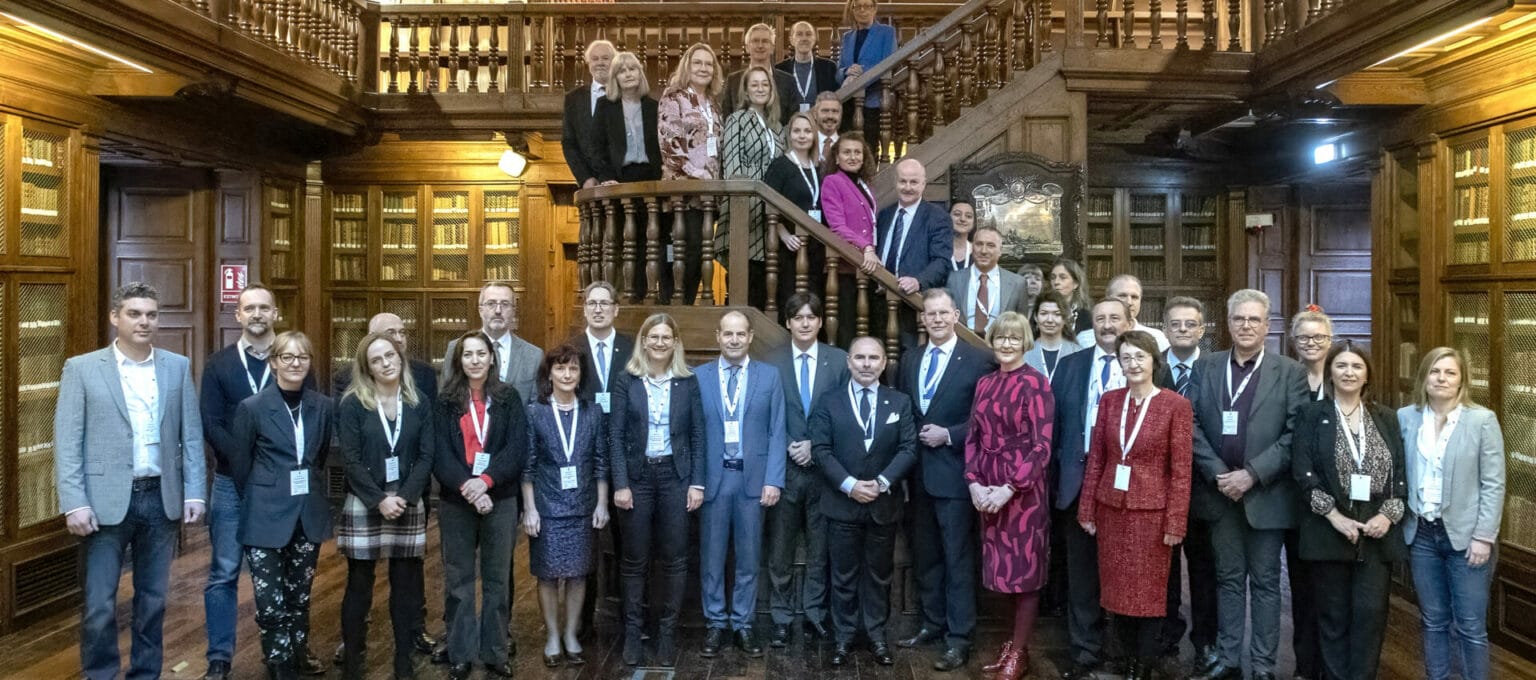New European university INGENIUM begins cooperation – Xamk the only Finnish higher education institution to participate
The INGENIUM cooperation aims to develop a unified European Campus which will operate in ten different countries.
“INGENIUM will provide students with opportunities to choose studies from an international selection to incorporate in their degrees,” says Eeva Kuoppala, Project Director of INGENIUM at Xamk.
According to Kuoppala, European Universities are the flagships of the development of European higher education.
“Through INGENIUM, Xamk will be part of European higher education and its development. INGENIUM will provide our students, staff, and research as well as the local business life with new, international opportunities,” says Kuoppala.
The INGENIUM Alliance received a four-year funding of over €14 million from the European Commission. Xamk’s portion of this budget is slightly over €1.9 million.
The decision on funding was made in the summer of 2022, and the INGENIUM cooperation began at the beginning of this year. The kick-off event was held in Oviedo, Spain at the end of January.
The plan for the next four years is to establish the structures and modes of operation for INGENIUM to ensure that its operations can continue after the funding period.
The INGENIUM higher education network includes a total of over 172,000 degree students and over 12,000 employees.
Influenced by the commission’s objectives
The development of unified European Universities is based on the European strategy for universities, according to which the European Commission aims to have built a total of 60 higher education networks comprising over 500 higher education institutions in Europe by 2024.
At the moment, 14 Finnish higher education institutions participate in the European Universities networks.
10 higher education institutions in the ingenium alliance
INGENIUM comprises ten higher education institutions, eight of which are universities and two of which are universities of applied sciences.
University of Oviedo, Spain (coordinator)
The University of Oviedo is internationally known especially for its expertise in chemistry and biotechnology, in addition to its strong engineering education. The university has approximately 20,000 students and 3,200 staff members.
Medical University of Sofia, Bulgaria
The Medical University of Sofia is a medical university in Bulgaria with approximately 10,500 students and 1,500 staff members.
University of Crete, Greece
The University of Crete is a university with approximately 24,500 students and 1,100 staff members. It has a strong background in innovation in science and mathematics (STEM) as well as medical science.
Karlsruhe University of Applied Sciences, Germany
The Karlsruhe University of Applied Sciences is one of the two universities of applied sciences in the network, with approximately 7,500 students and 630 staff members. The strengths of Karlsruhe lie especially in engineering sciences.
South-Eastern Finland University of Applied Sciences, Finland
Xamk is a dynamic and forward-looking higher education institution with a strong international focus on education, research, and sustainability. Xamk has approximately 11,500 degree students and 900 staff members.
University ”G. d’Annunzio” of Chieti – Pescara, Italy
The University “G. d’Annunzio” of Chieti – Pescara is a university in central Italy with approximately 23,000 students and 1000 staff members. The university has a strong background in health sciences.
University of Skövde, Sweden
The University of Skövde is a Swedish university with a strong expertise in biosciences. The university has approximately 11,000 students and 550 staff members.
Munster Technological University, Ireland
The Munster Technological University is one of the most highly rated higher education institutions in Ireland. MTU is notable for the way it integrates research, teaching, and work-related cooperation. MTU has approximately 18,000 students and 1,400 staff members.
University of Rouen-Normandy, France
The University of Rouen-Normandy is one of the “new universities” that have renewed higher education in France. URN has a strong expertise in arts, human sciences, and social sciences. The university has approximately 31,400 students and 2,500 staff members.
Gheorghe Asachi Technical University of Iasi, Romania
The Gheorghe Asachi Technical University of Iasi focuses especially on technological competence. TUIASI has approximately 13,500 students and 1,400 staff members.
Each higher education institution in INGENIUM has its own area of responsibility. Xamk is responsible for Work Package 5: INGENIUM for innovative teaching and lifelong learning. Work Package 5 focuses on setting up an innovation committee and drafting an innovation strategy. The work package will also include the development of the Education Lab, a decentralised research and development unit that will make the research and development facilities of the partner institutions available for shared use. In addition, the work package will also focus on Staff Academy, which will provide staff with opportunities for networking as well as co-developing, sharing, and transferring various innovative pedagogical methodologies.
The latest meetings of the INGENIUM Alliance, two cooperation events lasting 10 days in total, were held in Italy and Germany in June. The events brought together students and staff from the partner institutions and offered them various possibilities for networking and content such as the INGENIUM Summer School. In the future, the 10 Days of INGENIUM events will be held twice a year, in February and July.
For more information, please contact: Eeva Kuoppala, Project Director South-Eastern Finland University of Applied Sciences, 040 8420 507, eeva.kuoppala@xamk.fi








